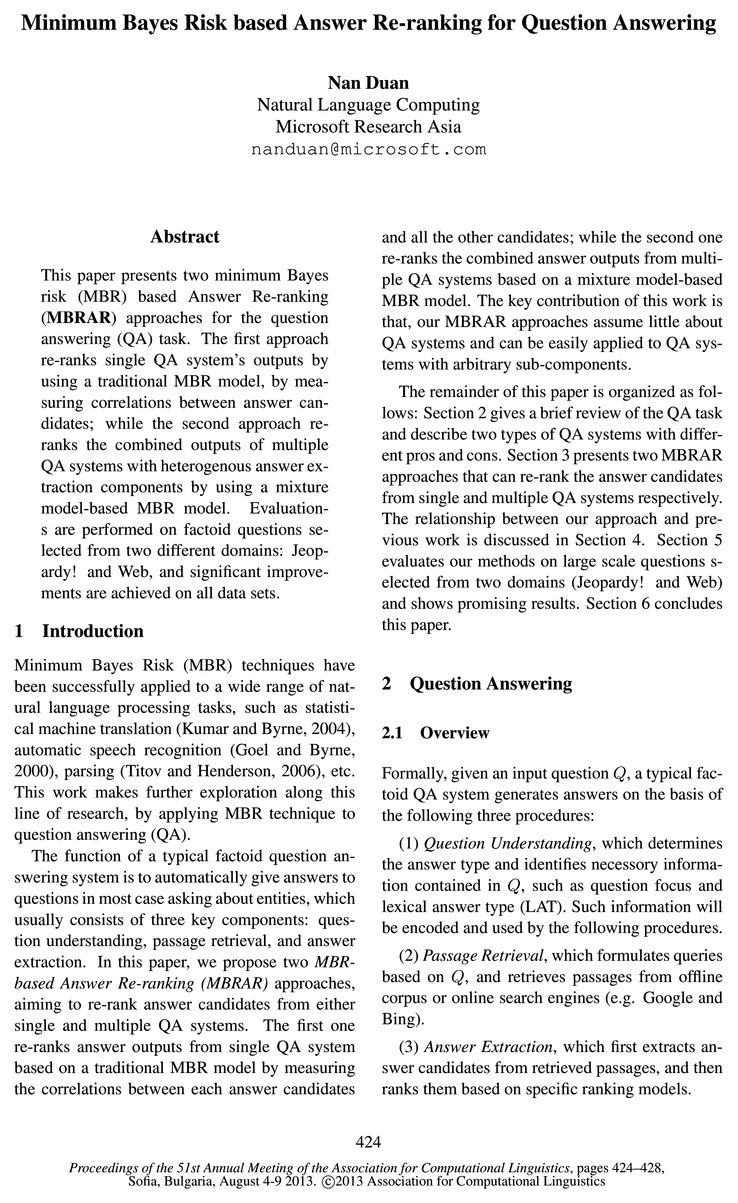Article Structure
Abstract
This paper presents two minimum Bayes risk (MBR) based Answer Re-ranking (MBRAR) approaches for the question answering (QA) task.
Introduction
Minimum Bayes Risk (MBR) techniques have been successfully applied to a wide range of natural language processing tasks, such as statistical machine translation (Kumar and Byrne, 2004), automatic speech recognition (Goel and Byrne, 2000), parsing (Titov and Henderson, 2006), etc.
Question Answering
2.1 Overview
MBR-based Answering Re-ranking
3.1 MBRAR for Single QA System
Related Work
MBR decoding have been successfully applied to many NLP tasks, e.g.
Experiments
5.1 Data and Metric
Conclusions and Future Work
In this paper, we present two MBR-based answer re-ranking approaches for QA.
Topics
n-gram
- 0 answer-level n-gram correlation feature:Page 2, “MBR-based Answering Re-ranking”
- where w denotes an n-gram in A, #w(“4k3) denotes the number of times that w occurs inPage 2, “MBR-based Answering Re-ranking”
- o passage-level n-gram correlation feature:Page 3, “MBR-based Answering Re-ranking”
See all papers in Proc. ACL 2013 that mention n-gram.
See all papers in Proc. ACL that mention n-gram.
Back to top.
question answering
- This paper presents two minimum Bayes risk (MBR) based Answer Re-ranking (MBRAR) approaches for the question answering (QA) task.Page 1, “Abstract”
- This work makes further exploration along this line of research, by applying MBR technique to question answering (QA).Page 1, “Introduction”
- The function of a typical factoid question answering system is to automatically give answers to questions in most case asking about entities, which usually consists of three key components: question understanding, passage retrieval, and answer extraction.Page 1, “Introduction”
See all papers in Proc. ACL 2013 that mention question answering.
See all papers in Proc. ACL that mention question answering.
Back to top.

